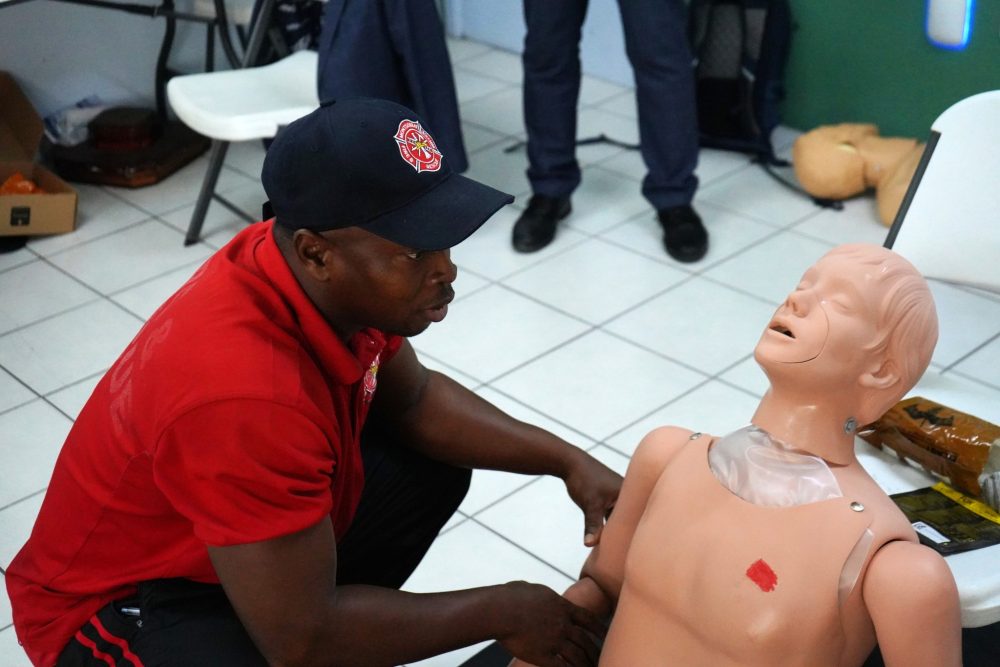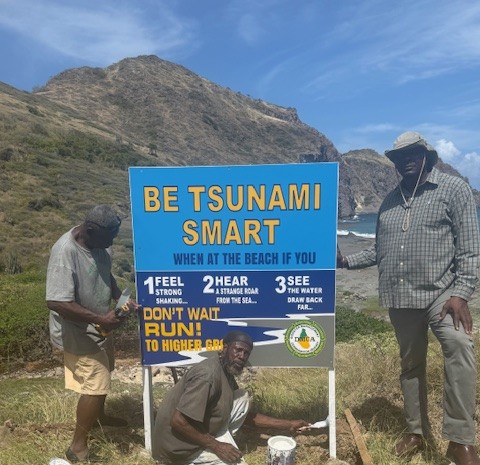 While there have been no confirmed cases of COVID-19 in the Caribbean thus far, transmission of the virus has been reported in territories with direct flights to Caribbean States. Therefore, due to the current increased risk of importation of COVID-19 to the Region, the Caribbean Public Health Agency (CARPHA) has upgraded the risk of coronavirus disease transmission from low, to “moderate to high.”
While there have been no confirmed cases of COVID-19 in the Caribbean thus far, transmission of the virus has been reported in territories with direct flights to Caribbean States. Therefore, due to the current increased risk of importation of COVID-19 to the Region, the Caribbean Public Health Agency (CARPHA) has upgraded the risk of coronavirus disease transmission from low, to “moderate to high.”
In light of this, CARPHA Executive Director, Dr. Joy St. John is urging health authorities of CARPHA Member States (CMS) to shift their mindset from preparedness to readiness and rapid response and continue to do all that is necessary to strengthen their capacity to respond to possible importation of cases. Dr. St. John is also encouraging Member States to increase their capacity for surveillance and to adapt their national pandemic preparedness plans to this current situation with COVID-19, as a matter of urgency.
 As of February 28, there has been 83,704 cases of patients with COVID-19. Outside of China, 52 countries have confirmed at least one case among travellers exposed in China and/or person-to-person contact. Of the deaths reported to date, 50 were from outside of Mainland China and several new countries in Europe (Denmark, Estonia, Georgia, Greece, Lithuania, Northern Ireland, Norway, San Marino, Netherlands, North Macedonia, Belarus, Romania, Pakistan Afghanistan, Bahrain, Iraq, and Oman) one in Africa (Nigeria) and another in Oceania (New Zealand) reported their first case of COVID-19 in the last 48 hours. Closer to the Caribbean region, in Latin America, Brazil has also reported its first case of COVID-19.
As of February 28, there has been 83,704 cases of patients with COVID-19. Outside of China, 52 countries have confirmed at least one case among travellers exposed in China and/or person-to-person contact. Of the deaths reported to date, 50 were from outside of Mainland China and several new countries in Europe (Denmark, Estonia, Georgia, Greece, Lithuania, Northern Ireland, Norway, San Marino, Netherlands, North Macedonia, Belarus, Romania, Pakistan Afghanistan, Bahrain, Iraq, and Oman) one in Africa (Nigeria) and another in Oceania (New Zealand) reported their first case of COVID-19 in the last 48 hours. Closer to the Caribbean region, in Latin America, Brazil has also reported its first case of COVID-19.
CARPHA has therefore identified that with the rapid spread of the virus from China to 38 other countries, Member States must be vigilant to detect any imported cases and be prepared to manage any subsequent local transmission.
 CARPHA urges the public to practice simple everyday preventive actions to help prevent the spread of respiratory viruses. It is recommended that persons maintain basic hand and respiratory hygiene, and avoid close contact, when possible, with anyone showing symptoms of respiratory illness such as coughing and sneezing. In addition:
CARPHA urges the public to practice simple everyday preventive actions to help prevent the spread of respiratory viruses. It is recommended that persons maintain basic hand and respiratory hygiene, and avoid close contact, when possible, with anyone showing symptoms of respiratory illness such as coughing and sneezing. In addition:
- Frequently clean hands using soap and water or use an alcohol-based hand rub if your hands are not visibly dirty.
- When coughing and sneezing cover mouth and nose with flexed elbow or tissue. Throw tissue away immediately and wash hands;
- Avoid close contact with anyone who has fever and cough;
- If you have fever, cough and difficulty breathing seek medical care early, and share previous travel history with your health care provider.
More information about COVID-19 can be found at http://carpha.org/What-We-Do/Public-Health/Novel-Coronavirus
Discover more from Discover Montserrat
Subscribe to get the latest posts sent to your email.



